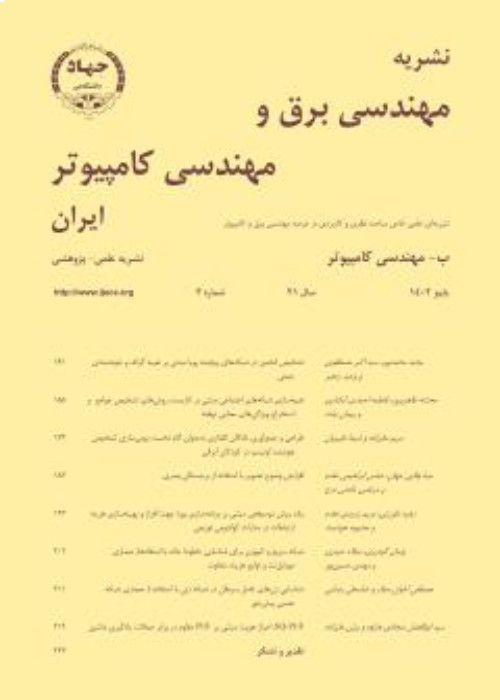Improvement of GMM Model Using PSK for Spoken Language Recognition Systems
Author(s):
Abstract:
Gaussian Mixture Model (GMM) is a simple and effective method for statistical modeling of the feature space which is widely used in spoken language recognition systems and EM algorithm is used for training the parameters of this model. In this paper, considering the weakness of GMM models, a new model named PAW-GMM is proposed. In this model, the power of each component of GMM in discriminating one language from the others is considered for determining the weights of components. Since PAW-GMM considers the discriminating property of GMM components, it could increase the accuracy of language recognition systems. Also one of the problems of GMM-PSK-SVM which is one of the best GMM models is the high complexity especially for high number of languages. Therefore UBM-PSK-SVM is proposed that has the same accuracy as GMM-PSK-SVM but lower complexity. Experiments on four languages of OGI corpus show the efficiency of the proposed techniques.
Language:
Persian
Published:
Iranian Journal of Electrical and Computer Engineering, Volume:9 Issue: 3, 2011
Page:
143
magiran.com/p1045098
دانلود و مطالعه متن این مقاله با یکی از روشهای زیر امکان پذیر است:
اشتراک شخصی
با عضویت و پرداخت آنلاین حق اشتراک یکساله به مبلغ 1,390,000ريال میتوانید 70 عنوان مطلب دانلود کنید!
اشتراک سازمانی
به کتابخانه دانشگاه یا محل کار خود پیشنهاد کنید تا اشتراک سازمانی این پایگاه را برای دسترسی نامحدود همه کاربران به متن مطالب تهیه نمایند!
توجه!
- حق عضویت دریافتی صرف حمایت از نشریات عضو و نگهداری، تکمیل و توسعه مگیران میشود.
- پرداخت حق اشتراک و دانلود مقالات اجازه بازنشر آن در سایر رسانههای چاپی و دیجیتال را به کاربر نمیدهد.
دسترسی سراسری کاربران دانشگاه پیام نور!
اعضای هیئت علمی و دانشجویان دانشگاه پیام نور در سراسر کشور، در صورت ثبت نام با ایمیل دانشگاهی، تا پایان فروردین ماه 1403 به مقالات سایت دسترسی خواهند داشت!
In order to view content subscription is required
Personal subscription
Subscribe magiran.com for 70 € euros via PayPal and download 70 articles during a year.
Organization subscription
Please contact us to subscribe your university or library for unlimited access!


